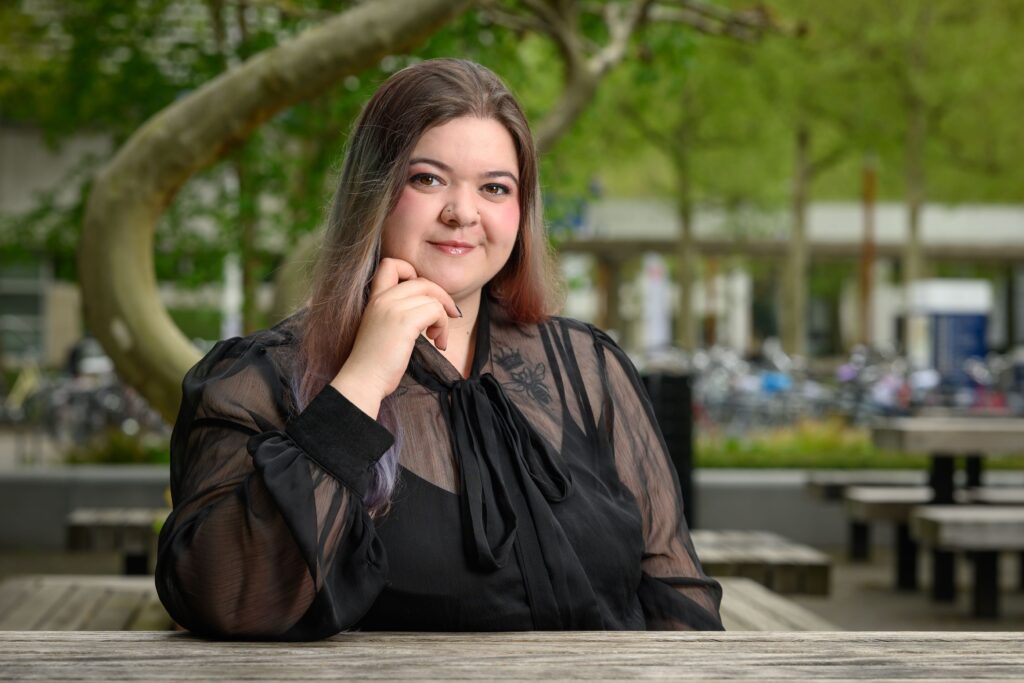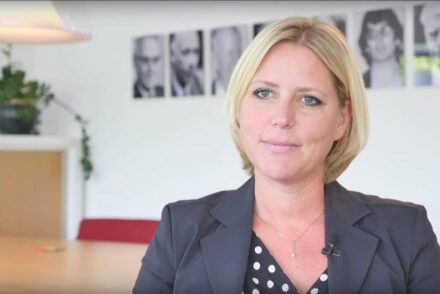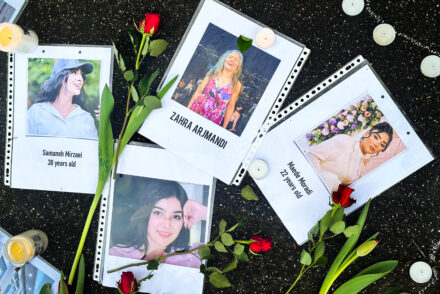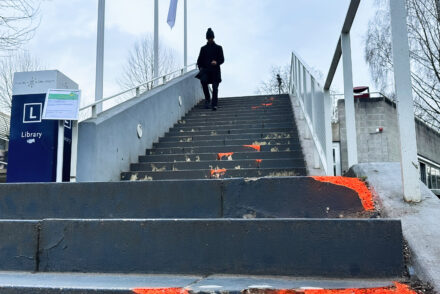The power of language: how legal interpretation can strengthen LGBTIQ+ rights
How can language improve the rights of LGBTIQ+ people? Former law student Kayla Thomas asks this question in her master’s thesis. ‘The queer community has a strong culture. This could be a legal basis to recognize this community as a protected group.’

Where does the inspiration for your master’s thesis come from?
‘I am fascinated by the role of language in law, especially the power that language has within the legal system. I also have a great interest in the LGBTQ+ community and their access to legal justice.
‘In international law, I noticed that LGBTQ+ rights are hardly enshrined. For example, Ghana and Uganda recently passed laws that criminalize homosexuality. Trinidad and Tobago has even recriminalized homosexuality.
‘In addition, in countries such as Nepal and the Czech Republic, there are targeted violent attacks on LGBTQ+ people. This type of violence is not legally recognized as genocide, while its severity and systematic nature could justify it. This led me to my research: analyzing legal definitions and exploring queer theory to better understand this exclusion.’
What did you research?
‘Queer theory is a critical approach that examines and challenges traditional ideas about gender and sexuality. Its starting point is that concepts such as ‘man’, ‘woman’, ‘hetero’ and ‘gay’ are not fixed or natural identities, but are created by language, culture and power structures.
‘In my thesis, I analyse the definitions of ‘genocide’ and ‘persecution’ as used by the International Criminal Court. I critically examine them from a queer-theoretical perspective, something that is still rarely done in international criminal law.
‘This research is important because many countries avoid or prohibit discussions about gender and sexuality. In discussions about crimes against humanity, many states refuse to consider gender identity. This makes it difficult to get these topics on the agenda of policymakers and judges, let alone to include them widely in academic studies and curricula.’
What did your research reveal?
‘The most important insight from my research is that laws can be read and interpreted in a new way. I have used a method called ‘reparative reading’ for this. This means that you read the existing text of the law with a focus on opportunities and improvements, without completely rewriting the law. The central question is: how can we use the current words to legally recognize and protect more people?
‘A good example is the word ‘ethnicity’. This is usually interpreted strictly. But during the trials on the Rwandan genocide, the court had to interpret the definition more broadly in order to recognize two groups as ethnic, while according to the literal definition they did not fall under that. This shows that there is room to adjust interpretations.’
How does that apply to the queer community?
‘With that in mind, I asked the question: can queer communities also be seen as an ethnic group? They often have a shared culture and sometimes even their own language. An example is ‘Polari’, a secret language that queer people used in the UK when homosexuality was still punishable.
‘In addition, the queer community has a rich and long-standing culture, such as the ballroom and drag scene. In these communities, traditions are passed on in ‘houses’, a kind of chosen families of drag performers. This shows that queer communities have strong cultural structures that transcend generations. This is an example of how you can create a legal basis for recognising queer communities as a protected group.’
What do you hope to achieve with your thesis?
‘My research offers a new perspective on how we can read and interpret international law. I hope it will encourage legal professionals, policymakers and academics to think about how language in law excludes certain groups and how we can change that.’
Master’s thesis
A literature study, experimenting in the lab or still working with SPSS? The students of Tilburg University write the most diverse theses. In the Master’s thesis section, Univers highlights one each month.
Author: Kayla Thomas
Title: Confronting heteronormative identity concepts in the Rome Statute of the ICC: a queered close reading of genocide and persecution as a crime against humanity
Supervisor: Junteng Zheng
Grade: 9.0
Master: LLM International and European Law






